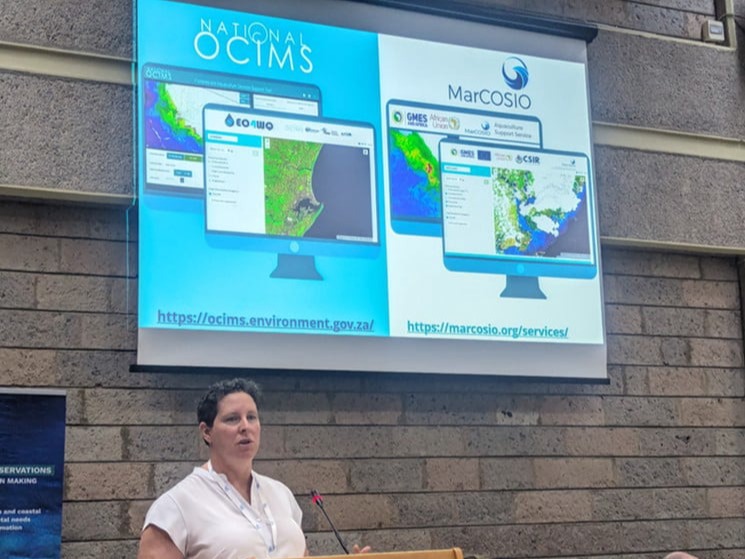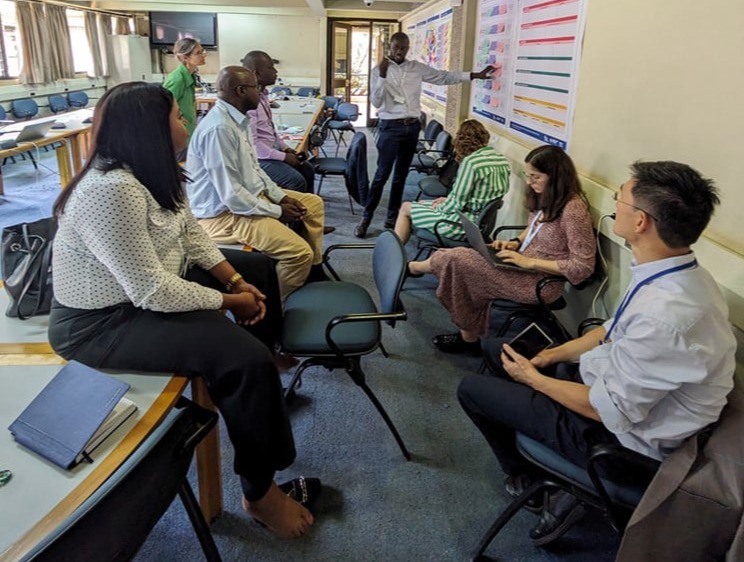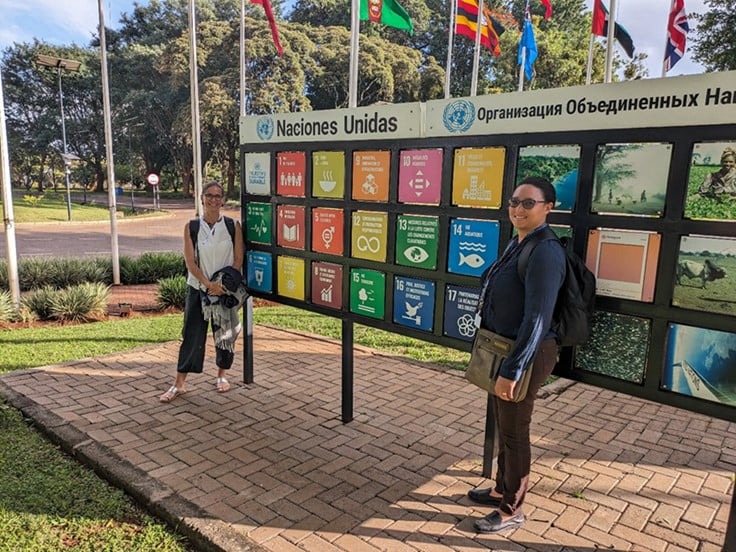The Geo Blue Planet Workshop on Coastal Sustainability in Africa took place from March 4th to 7th, 2024 at the United Nations (UN) Office in Nairobi and welcomed participants from various stakeholder groups from different countries, including the UN, regional bodies, national agencies, research organizations, civil society, and the private sector. The workshop, very much aligned with the African Union (AU) blue strategy, the UN Ocean Decade roadmap for Africa and other international frameworks, aimed to achieve two main objectives: exploring how ocean observations and prediction can support stakeholders' needs; and determining key priorities and requirements for ocean observations and prediction to address coastal sustainability challenges in Africa.
Dr. Marié Smith from the Council for Scientific and Industrial Research (CSIR) and Dr. Jennifer Veitch from the South African Environmental Observation Network (SAEON), South Africa, attended the workshop. Both scientists are key contributors to the Oceans and Coastal Information Management System (OCIMS), an initiative driven by the South African government to share ocean data and knowledge across government departments, organizations, or institutions to enhance ocean protection, conservation, and management. Dr. Smith and Dr. Veitch support various OCIMS Decision Support Tools related to fisheries, aquaculture, water quality, and search and rescue.
The GEO Blue Planet workshop began with an emphasis on contextualizing the four main themes: shoreline changes, coastal flooding and inundation, coastal ecosystem characterization, and water quality. These themes were explored in relation to international and continental strategies, roadmaps, and policies, while also highlighting regional priorities and needs. The workshop included informative keynote sessions and flash-talks on existing regional products, tools, and services for decision-making across the continent, followed by a panel discussion addressing the current needs and limitations of early warning systems for the environment in Africa.
During the third day the participants engaged in breakout sessions consisting of hands-on activities and guided group work focused on the four thematic areas, with Drs. Smith and Veitch participating in the water quality and the storm surge groups, respectively. These interactive sessions were conducted as co-design exercises between data users and providers, scientists, and policymakers, which facilitated the exchange of ideas and expertise, fostering exploration of innovative solutions for coastal sustainability challenges.
On the fourth day, participants concluded their workshop experiences, reflecting on the knowledge gained and the benefits for OCIMS and future partnerships in Africa. Discussions centred around the workshop's overall impact and the potential for ongoing collaboration through the development of comprehensive policy briefs to advocate for system implementation, addressing coastal and ocean challenges in Africa.
Throughout the four-day workshop, the networking opportunities during breaks and social gatherings encouraged meaningful interactions among participants, fostering potential for lasting collaborations. Additionally, the need for capacity building initiatives in Earth Observation data and services training emerged as a promising area for future collaboration within frameworks such as Global Monitoring for Environment and Security and Africa (GMES&Africa) Marine and Coastal Operations for southern Africa and the Indian Ocean (MarCOSIO) project. However, some challenges were noticed, like participants not interacting much with others outside of their specific thematic areas. People suggested adding ice-breaker activities in future workshops to help different groups interact better and build a stronger sense of community.
Reflecting on their experiences, Dr. Smith and Dr. Veitch felt happy about making friends with people from different backgrounds in Africa. They all wanted to solve the same problems together. After the workshop, they felt excited about working together and sharing knowledge.
The Geo Blue Planet Workshop was a valuable experience for Dr Marié Smith and Dr. Jennifer Veitch. They look forward to using what they learned to guide future OCIMS development and develop future partnership to preserve and manage coastal ecosystems in Africa.



